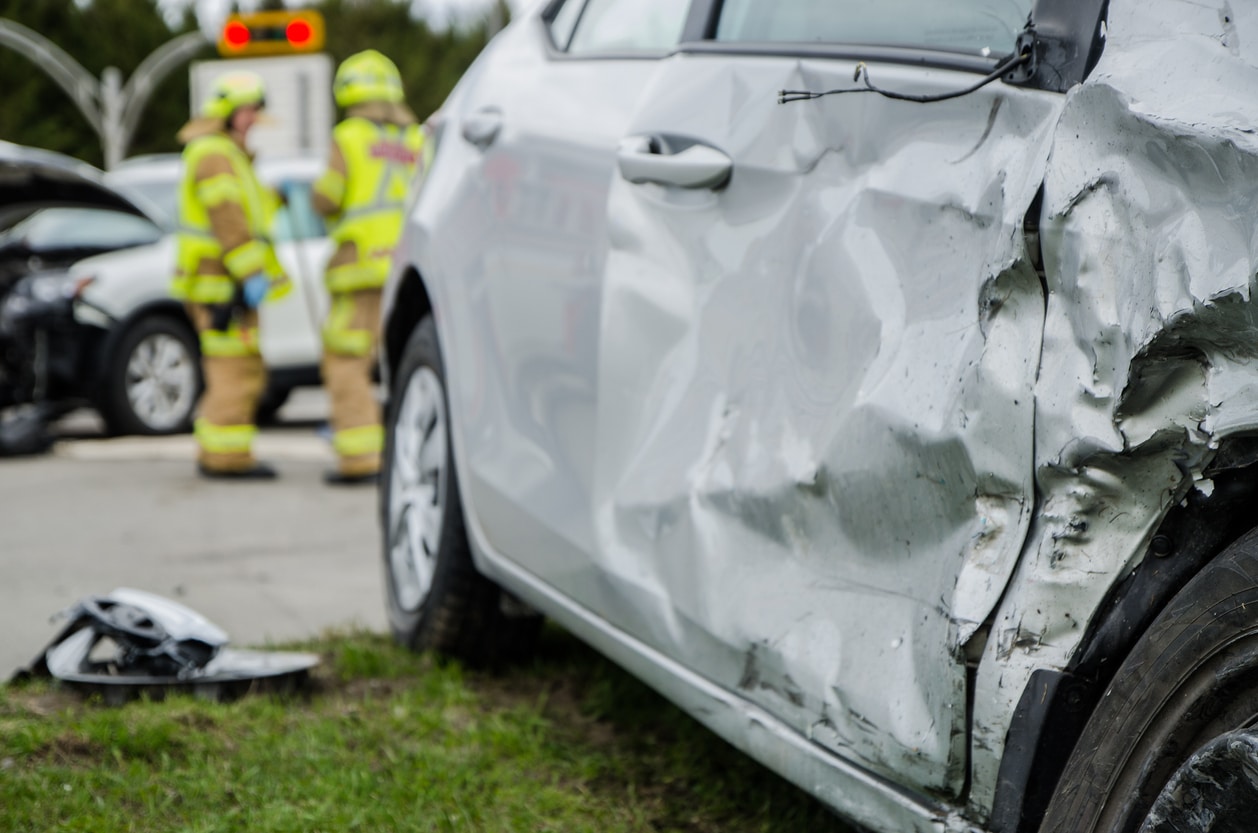Joshua P. Myers | November 24, 2014 | Car Accidents

There can be a surprisingly large number of people near the scene of an accident. There’s the at-fault driver, any other drivers involved, a few passengers per car, any first-responders, and more. When a car accident that you’ve been involved in makes these people late to whatever appointment they were headed to, you may feel guilty.
Beyond the people physically near the scene of the accident, your smart phone connects you to the entire world. Watch what you say both in person and digitally.
Don’t say “I’m Sorry” to Anybody after a Car Crash
In the wake of a car accident, the word “sorry” should not be part of your vocabulary—it could be interpreted as admission of guilt and used against you later. It’s a tough habit to break. For many of us, saying “sorry” is a knee-jerk reaction.
For example, if a good Samaritan pulled over to help, they may mention that they’re going to be late to work. You may want to say “I’m sorry” meaning “I’m sorry that my situation has made you late to work,” but the Samaritan or someone nearby may think that you’re apologizing for causing the accident in the first place.
Your apology may be mentioned in one of these witness’s statements—convoluting information as to who was at fault.
But what if the Crash Was your Fault?
Even if you think you caused the accident, don’t say sorry at the scene. truly, you don’t know all the facts just yet. If you rear-ended someone because you thought they were moving, it may seem like it’s completely your fault. Later down the road, if it turns out that their brake lights were out, or because the road was poorly paved, investigators may determine that those factors contributed more to the accident.
Missouri and Illinois are states that allow for varying degrees of fault. Saying sorry immediately after the accident can complicate the investigation that follows.
For a lot of us, it’s hard not to say sorry when we’re inconveniencing another person. Realistically, saying sorry doesn’t accomplish anything.
There are other ways to be polite and appreciative. Once the claims process is all said and done, and you were determined to be the at-fault driver, a nice card may do if you still feel an apology is in order. The other drivers may appreciate the sentiment.
What to Say to the Other Driver
The first thing you should say to the passengers in your car, or the other drivers or passengers involved is “are you okay?”
Regardless of fault, check to see whether anyone was hurt. If the other driver caused the crash, it may be easy to get mad, and even want to yell at them. This is not the time to get angry. Remain calm, and check on anyone involved in the crash. Demonstrating concern for the welfare of everyone involved is the right thing to do.
You don’t have to say much else after checking for injuries. Exchange names and contact information, but neither apologize nor accuse. Instead, while waiting for police, take pictures of the scene, and if possible, move your vehicle out of the way of traffic.
What to Say to the Police Officer
If a police officer is dispatched to the scene of the accident, the general rule of thumb is that the officer will talk to the person they believe to be at fault first. So, for example, if someone rear-ended you, it is likely that he or she was responsible for the accident, so you will have to wait on the side of the road, or in your car while they are interviewed.
When the other driver’s interview is happening, resist the urge to interfere, correct, or eavesdrop. Part of the officer’s job is to hear both sides of the story. Interruptions won’t help. You’ll get your turn. We recommend getting out a piece of paper and writing down everything you remember about the crash; Where exactly it occurred, whether there were vehicles around you, or other circumstances that may be pertinent.
During your interview, be polite and honest with the officer. If he asks you anything you didn’t include on your crash summary, try to make note of it. This is the type of information the insurance adjuster will want to know.
Hold on to your note paper for when the other driver’s insurance adjuster calls. As time progresses, your memory becomes less and less clear, and this may come in handy.
Honest, accurate information will help move the claims process along quickly.
What NOT To Say on Facebook
Whether or not you apologize at the scene of the accident is really a small detail. What’s more important is that, number 1, you don’t agree to any recorded statements when the at-fault driver’s insurance adjuster calls. and number 2, keep pretty quiet about your injuries on social media like Facebook and Twitter.
That includes status updates as well as reaching out to the other driver.
Contact Our Car Accident Law Firm in St. Louis, MO
If you’ve been injured in a car accident, please contact Schultz & Myers Personal Injury Lawyers at the nearest location to schedule a free consultation today:
St. Louis, MO Law Office
1430 Washington Ave Ste 225, St. Louis, MO 63103
(314) 444-4444
Ladue, MO Law Office
9807 S 40 Dr, St. Louis, MO 63124
Columbia, MO Law Office
28 N 8th St # 502, Columbia, MO 65201
Creve Coeur, MO Law Office
999 Executive Pkwy Dr #205, Creve Coeur, MO 63141

